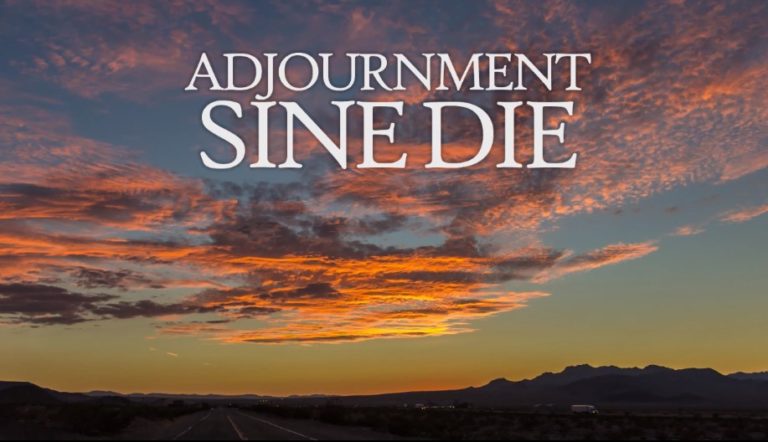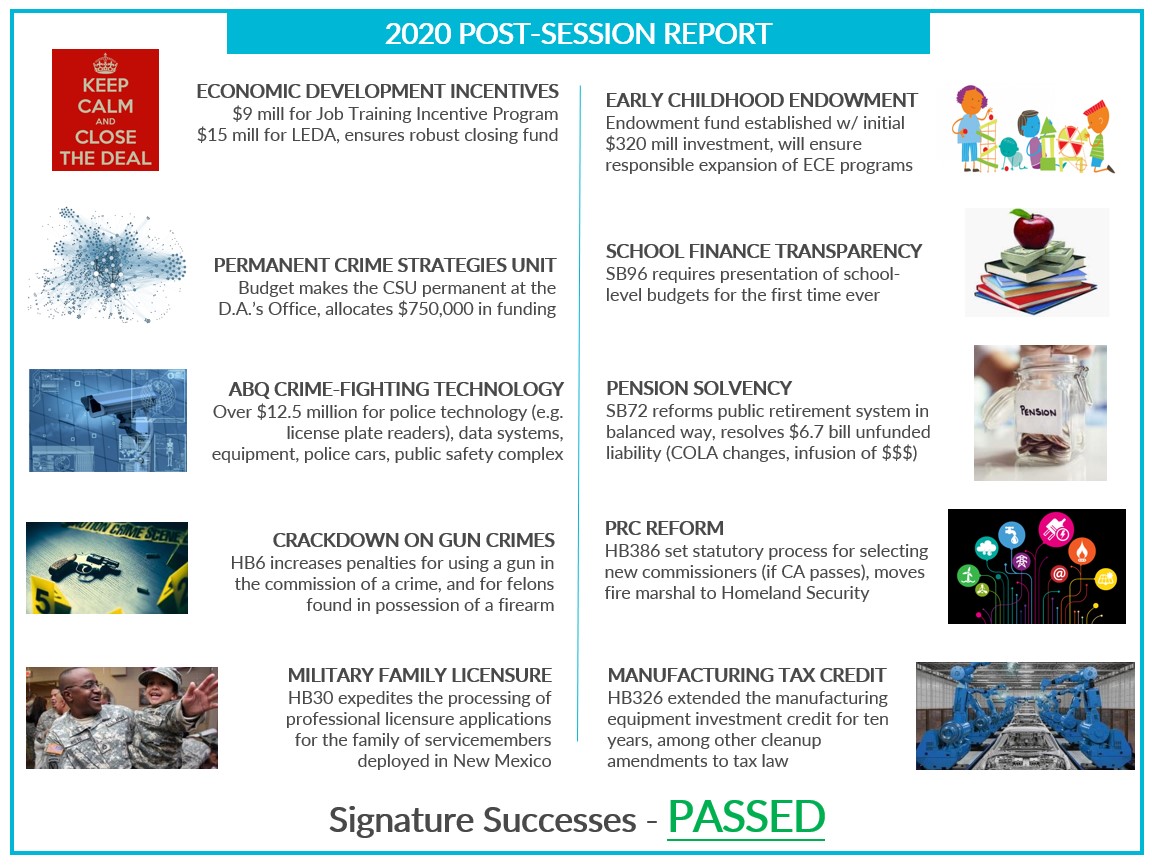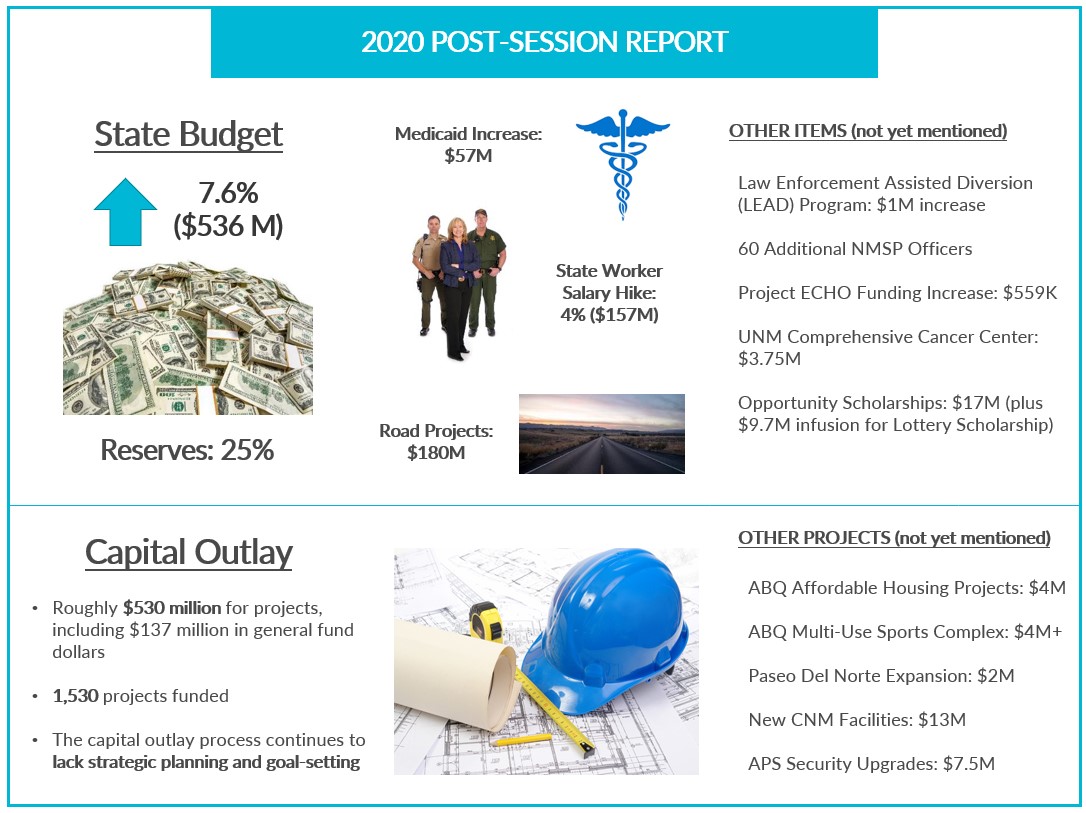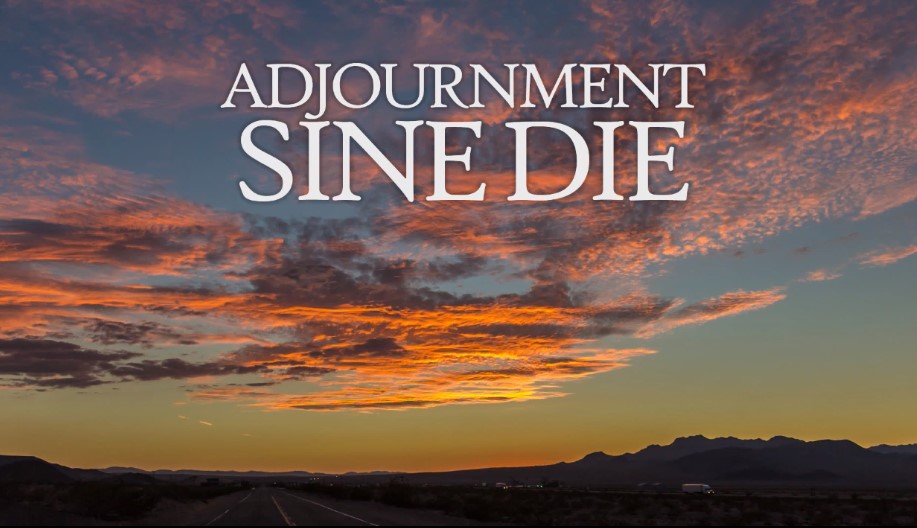
With a gavel from Lieutenant Governor Howie Morales shortly after noon on Thursday, February 20, the 2020 legislative session drew to a close. After a busy and sometimes contentious 30 days, only 88 bills were ultimately passed on to Governor Michelle Lujan Grisham for signature, a 20% decline from the last 30-day session and a steep drop from the 300+ bills that cleared both chambers last year.
Still, the legislature passed several significant bills and approved a budget including an increase of more than $500 million in new recurring spending, and the Chamber was there representing Albuquerque and the business community throughout.
Here’s an overview of developments for some of the key priorities on the Chamber’s 2020 legislative agenda and new spending in the state budget and on capital outlay projects:


In addition to the items mentioned above, the Chamber also worked hard on the passage of a 10-year extension of the manufacturing equipment investment tax credit and a new law that will quickly recognize and grant professional licenses to the spouses of military members stationed in New Mexico.
Proposed measures that received a great deal of attention, but ultimately did NOT pass, include the legalization of recreational cannabis, new taxes on health insurance premiums and gasoline, the elimination of the capital gains tax deduction, and the annual attempt to increase distributions from the Land Grant Permanent Fund.
The Chamber remains deeply concerned about the opaque, grab-bag process by which capital spending occurs in New Mexico, and there were several measures we had hoped the legislature would pass this year, including legislation making it a crime to run a “chop-shop” and a proposal by UNM HSC Chancellor Dr. Paul Roth to offer free medical school tuition to those who make a commitment to serving as a doctor in New Mexico. Finally, while we appreciate that budget reserves are projected to remain at about 25% (a substantial, but prudent amount), overall recurring spending for state government will go up by over 7.5% in this budget – meaning that our budget has grown by nearly 20% over a two-year period. Given volatility in energy production, this kind of government growth is likely unsustainable. It’s a good thing lawmakers and governors over the past several years have created a robust rainy-day fund (the tax stabilization reserve), bolstered overall reserves, shored up the state pension fund, and created an endowment fund for early childhood education initiatives (which should insulate these programs from revenue swings).
To catch up on the Chamber’s daily Legislative Roundups from each day of the session, click here; to be added to the list of recipients for next year’s Roundups, email Chris Narkun at [email protected].




